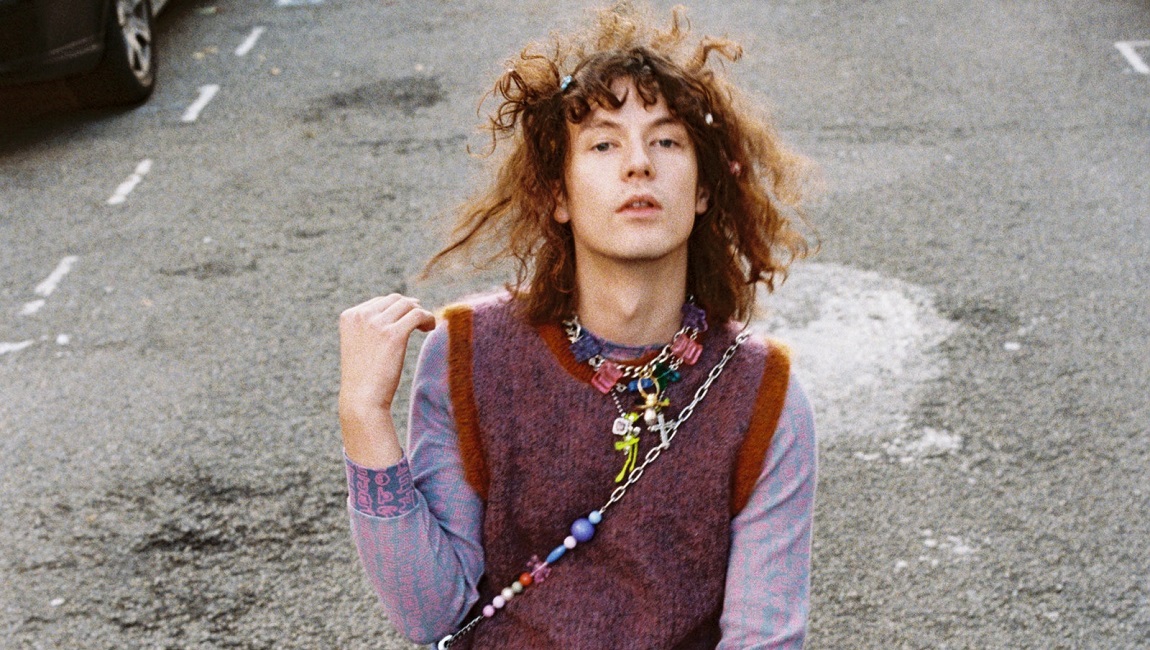It’s true, we didn’t really cover music all that extensively in 2015 (unless reviews of a 10-disc set of live Brad Mehldau material and a 4Minute EP cover the extent of music that mattered to you in 2015, which hey, we feel you), but we’re hoping to rectify this in the coming year, and as a good faith gesture for that resolution, we’ve put together a pair of lists to appraise a year in music that we definitely didn’t sleep through. To kick things off, here are our Top 10 Songs (they didn’t necessarily have to be singles, though all of them are) of 2015. Our list has newcomers and old-timers, genre traditionalists and hell-raisers—and a good bit of taking your butt to church. Sam C. Mac
10. One would hardly have expected that, after the constricting formalism of 2012’s Visions, Grimes would offer up as deliriously carefree a track as this to be the crowning statement of a fourth album wholly dedicated to experimentation and variety. Her outright refusal to bend to external pressures in pursuing particular genres and styles may represent one of the most compelling narratives in music this year. “Flesh Without Blood,” with its restless energy and sonically off-the-leash riffs, perfectly captures its artist’s newfound defiance. Bursting with self-reflection, antipathy, and longing, the song echoes the sentiments of her previous work, but in the form of an infectious pop confessional. Cannily detailing the process of falling out of love, the song register as an extraordinarily fearless success for a formerly guarded artist. Calum Reed
9. Missy Elliott has teased comebacks intermittently throughout this decade and the last, ever since releasing The Cookbook in 2005, and each of those false starts were met with perhaps more positive notices than they merited. But she’s finally pulled off the right-and-proper comeback everyone had hoped for with “WTF (Where They From).” The non-sequitur ad libs and playful effects sound nearly as fresh as they did in 2001, and the drum line rhythm here proves that she can still bang with any of the acts who rose to prominence in her protracted absence. But perhaps her greatest coup is in taking the overexposed Pharrell and somehow making him sound charming again. She’s always been something of a magician, Missy, and this may be her most impressive trick to date. Jonathan Keefe
8. “Alls my life I’ve had to fight!” “Alright” is a song of struggle for the era of Michael Brown and Tamir Rice, Kendrick Lamar’s hookup with Pharell Williams mounts optimism like a dare, a sneer, a dream deferred—but not, it is crucial to note, like any kind of fantasy or delusion. We’re all fucked, the song says, but if God’s got us—and we might as well hope that he has—there might yet be redemption for this cruel age. And it might even sound something like the pain-drenched saxophone blues that Pharrell loops through the back of the track—altogether stankier than any of the horn lines you’ll hear on a Jason Derulo song. Josh Hurst
7. For all its stubborn sprawl and deep pockets of imagination, To Pimp a Butterfly never locks into a funkier groove than this mighty, serpentine ride—a P-funk update that blows past most contemporary hip-hop singles by simple virtue of its swing, providing early warning that Kendrick Lamar is more complicated, and has more on his mind, than even his landmark debut album suggested. The good kid has made it big, and he’s discovered quickly that it’s not so easy being everyone’s hero: “King Kunta” is weighted down by fame and expectations, tarnished by temptation, tempted by limitless possibility and scared shitless that all of this could end in a second. It takes hip-hop’s most sacred theme—i.e., why I’m doper than you—and turns it into an anthem of internal conflict, a raging and rueful “Lonely at the Top” for a black American who got over; who struggles on. Josh Hurst
6. Of course Kanye mostly let Yeezus II leftover “Piss on Your Grave” go to one of his charges—the firebrand avant hip-hop comer Travis Scott is just as appropriate a vessel for this punk “New Slaves” transfiguration as Rihanna was for the acoustic pop-rock of “FourFiveSeconds.” In both cases, Kanye affords himself the opportunity to put out some experimental material, avoid the commercial pratfalls of full ownership, and at the same time elegantly fill the space he leaves vacant with artists able to access certain emotional register he knows would be a strain for his 38-year-old self. In the case of “Piss on Your Grave,” Scott’s participation allows focus to shift to “young niggas treated like slaves,” a pointed torch-passing transition that Scott rides, along with the brilliant swamp-blues beat, to pronouncements of a new generation’s defiant braggadocio. Sam C. Mac
5. Though by this point Fetty Wap has thoroughly laid to rest any of the initial rumblings of his potential one-hit-wonder status, “Trap Queen” remains his definitive calling card thanks to its refreshingly lived-in brand of throwback rap. In the current period of hip-hop history where intentionality and social consciousness can start to feel calculated, Fetty’s outré and, more tellingly, casual celebration of dope slinging as a path toward empowerment is just off-kilter enough in its unfiltered authenticity to make clear his refreshing free agency from establishment. Lyrically, he dabbles in nouveau thug balladry here, celebrating his favored lady in ways reminiscent to the stylings of an early-oughts Ja’Rule, but again surprises in painting his titular queen as a partner as a muse. Layer all of this artistic idiosyncrasy upon an impossibly catchy melody built on trap beats and what sounds like a strange, synthesized whistle and mix in the more predictable stunting, and what you’re left with is nothing more or less than the most exciting new voice in hip-hop delivering the genre’s most primally infectious song of the year. Luke Gotham
4. The reverberations of an “ella-ella” or a “na-na” now feel something like a big bang: There would be no “We Can’t Stop,” no “Come & Get It,” without the syllabic tongue games Rihanna used to galvanize pop in the latter half of the aughts. Of course, hashtagging your way through vocals only gets a singer’s career so far, and if “Stay” found Rhi trying to demonstrate her greater range through familiar song forms, “FourFiveSeconds” does so the way she knows best—by inventing her own. Paired with Kanye West in his rough crooner mode, the two bleat bluesy, subtly racially motivated woes over a perversely muted Paul McCartney, doing his best impression of a Lindsey Buckingham demo’s rhythm track. That the lyrics here obsess over running out the clock makes for a perfect avatar for the still-unreleased album Rihanna’s been teasing for a minute. Sam C. Mac
3. Carly Rae Jepsen‘s transformation from well-regarded one-hit wonder to bona fide critics’ darling didn’t take long, and the ebullience of “Run Away With Me” accounts for much of that goodwill. Truly, no one in contemporary pop is better at Taking It! To the! Feeling! than Jepsen, and she does so with such a command of pop’s conventions that it renders any criticisms of those feelings as juvenile to be nitpicky and cynical. Rarely has the energy of a new relationship been so perfectly captured in a song’s structure: From the way the opening sax blast goes sharp at the end to the dramatic shift in dynamics as Jepsen launches into the chorus, “Run Away With Me” is infatuation made audible, and it’s nearly impossible to imagine turning down such an open-hearted invitation. Jonathan Keefe
2. A lot of great country songs work in a simple turn of phrase—an inverted simile or cliché that as often as not makes us groan at the cornpone humor. It’s a classic idiom that’s easy to make light of, but Ashley Monroe takes it deadly serious: She delivers the hinge lyric of “The Blade” like the stab in the gut it’s supposed to be. “I thought that we were both in all the way/But you caught it by the handle, baby, and I caught it by the blade.” Or like that other country song says, love hurts. “The Blade” leans heavily on formalist construction and is delivered with the slow-burn intensity of a singer way too smart to belt every big chorus, even though she knows she can. The drama here is in the naked poetry and plainspoken hurt in her voice. It’s a song about an everyday, life-changing betrayal—and for as sophisticated as the songwriting is, you don’t have to listen but once to know exactly what “The Blade” is about. Josh Hurst
1. In an age when organized religion can be an all too easy target thanks to predominantly oppressive, backwards social views, Donnie Trumpet & the Social Experiment‘s “Sunday Candy” appropriates the western church’s aural atmosphere and symbolic language in its celebration of something the church is too often missing—deeply felt love, in all forms. The Eucharist factors prominently in the group’s lyrical wordplay here, whether it’s poet-singer Jamila Woods crooning the track’s more directly romantic chorus (“You gotta move slowly, take and eat my body like it’s holy“) or Chance the Rapper’s second-verse devotion to his grandmother (“I come to church for the candy/Your peppermints is the truth“). But it’s the marriage of religious imagery and sonic sensibilities that makes for something truly affecting rather than merely a gimmick. Beginning with a twinkling piano melody, the single quickly begins layering in trombones to establish its baseline in the first verse before trumpets join synthesized, glitched-out drums on the next. The controlled chaos of the building orchestration, evoking our best notions of heartfelt spiritual expression, are complimented by the pared-down sincerity of the chorus, making for a listening experience that feels blissfully, thankfully, worshipful. Luke Gorham








No Comments